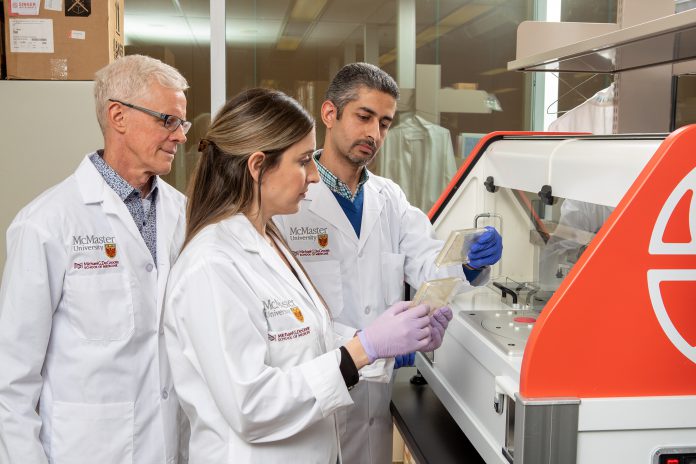
What if on your next doctor’s visit instead of getting an antibiotic prescription you are told to smoke some weed instead? Seems like that might be the case in a few years thanks to the researchers at McMaster University, Canada.
A study published in the journal, American Chemical Society Infectious Diseases states that cannabis plants may have antibacterial properties.
The cannabis plant is composed of more than 100 chemical compounds, called cannabinoids. In this study, 18 of these compounds were investigated and found to have antibiotic potential. Cannabigerol, also called CBG, was found to be the most potent of them all, working against both gram-positive and gram-negative bacteria. CBG was shown to inhibit the bacteria’s ability to form biofilms, a layer produced by the bacteria to protect itself, and destroy preformed biofilms and cells resistant to antibiotics.
The research led by Eric Brown, professor of biochemistry and biomedical sciences at McMaster University, was conducted in mice infected with methicillin-resistant Staphylococcus aureus (MRSA). MRSA is a major healthcare issue due to exhibiting resistance to the most common antibiotics. It can cause mild infections like boils or abscesses to more serious infections of the lungs and blood.
Although the study gives us an insight into the therapeutic potential of cannabis more research is needed to develop this into a drug. The research has only been conducted in mice so far therefore no data is available to show how cannabis may affect human cells. Another limitation the study found was the toxicity of cannabis and the potential to damage healthy human cells when used in high doses. Professor Eric Brown hopes that combining CBG with other substances will help lower its toxicity. Various trials conducted by Brown and his team of researchers showed that CBG in combination with antibiotic Polymyxin B was able to target multi-drug resistant gram-negative bacteria.
As more and more countries legalize cannabis, the stigma around using drugs for medicinal purposes is lifting and there are more chances of funding for researches looking into cannabis’ antibiotic properties.
Reference:
Maya A. Farha, O. M.-H. (2020, February 4). Uncovering the Hidden Antibiotic Potential of Cannabis. American Chemical Society Infectious Diseases.



